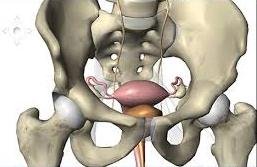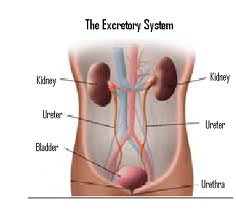
Have you wondered why we sweat, urinate or excrete? What would happen if any of these activities are not carried out daily? The entire system of the body and its balance gets disturbed, doesn’t it? Also sometimes it may lead to other serious illnesses. Anything and everything that is consumed, has to be expelled out of the body once the necessary nutrients are absorbed by the blood for the systematic and normal functioning of the body. This is enabled by the Excretory and the Urinary System.
The Excretory System is a system that removes the waste, excess and other unnecessary materials from the body and maintains a balanced internal environment by regulating the chemical composition through retaining the proper amount of water, salts and nutrients. The process is carried out with the help of specialized structures and capillary networks that assist in the excretory process.

The Urinary System, as the name suggests, eliminates urine and other fluid waste from the body with the help of the kidneys. Also known as the Renal System, it stores and produces urine and works with the lungs, skin and intestines to balance the chemicals and water in the body. Depending on the amount of fluid consumed, it is estimated that adults urinate about 1.42 litres a day.
The major and important parts of the Excretory System are:
-
Kidneys: Kidneys are bean shaped organs that are located at the sides of the vertebral column. They are responsible to expel the wastes from the blood such as urea, salts and water in the form of urine. This is helped by the Nephrons. Kidneys filter the blood and the wastes are carried away from it in the form of urine. It is passed on to the ureter and is later passed to the urinary bladder. The bladder stores the urine and is expelled out of the body through an opening called the urethra.
-
Liver: The primary function of the liver is to break down the chemicals such as ammonia. The ammonia is transformed into urea by the liver and this urea is then filtered by the kidneys. It also produces bile which is helpful in breaking down the fats that can be utilized by the body.
-
Bile: It is located in the gall bladder and is produced by the liver. It breaks down the ethanol, ammonia and other acidic substances to the small intestine.
-
Large Intestine: The large intestine is responsible for collecting waste, extracting the water required by the body and then accumulating the solid waste. The wastes stored are later transported through the tubes.
-
Skin: The sweat is released through the skin. Sweat is a form of an additional waste that is extracted out of the body through the sweat glands. Also the salt that is present in the sweat helps to keep the body cool when it becomes warm.
-
Eccrine: These glands are mainly located on the forehead, bottom of the feet and the palms and throughout the body. They are responsible for maintaining the temperature of the body. Ureter: The kidneys pass the urine to the urinary bladder through the muscular ducts called the ureter
-
Urinary Bladder: The bladder stores the urine that is passed by the kidneys before urination
-
Urethra: It connects the urinary bladder to the outside of the body

The primary function of the Urinary System is to remove the excess fluid and substances from the body. It plays a significant role in the body:
-
It removes the wastes, mainly urea and uric acid from the body
-
It removes the fluid waste from the body
-
The electrolytes in the body like sodium, potassium and calcium are regulated due to the Excretory System
-
Helps in controlling the blood volume and maintains the blood pressure
-
It is responsible for the eradication of the build-up of the harmful chemicals
The Excretory System is responsible for the removal of unnecessary materials from the body, thereby maintaining the homeostasis for the body, that is, control the internal environment of the body, preventing it from damage. Its major role is:
-
Controls the internal environment of the acid-based body substances
-
It is responsible to dispose-off the solid waste (undigested food eaten) from the body in the form of faeces
-
Our body cannot digest cellulose, and hence it forms one of the main substances present in faeces
The disorders that affect the Urinary and Excretory System are:
-
Urinary Tract Infection: It is a very common disorder. If it affects the bladder, it is called cycstitis and if it affects the urethra, it is called urethritis. The common symptoms include burning sensation during urination, frequent urination and brown urine.
-
Pyelonephritis: It is a serious Kidney Infection which may spread to the blood causing severe illnesses
-
Kidney Stones: They are crystals of calcium oxalate found in both men and women and occur at any point of time. Infections in the urinary bladder, insufficient intake of water, low levels of physical activity, excessive intake of Vitamin C and D are some of the causes. However one can drink lots of water to avoid this disease. Common symptoms are severe back or abdomen pain, blood in the urine, nausea and vomiting.
-
Interstitial Cystitis: It is a condition of the bladder which requires for the affected person to urinate frequently and sometimes accompanied by pain. Although its cause is still unknown, it leads to bladder scarring and hence the bladder cannot hold much urine.


